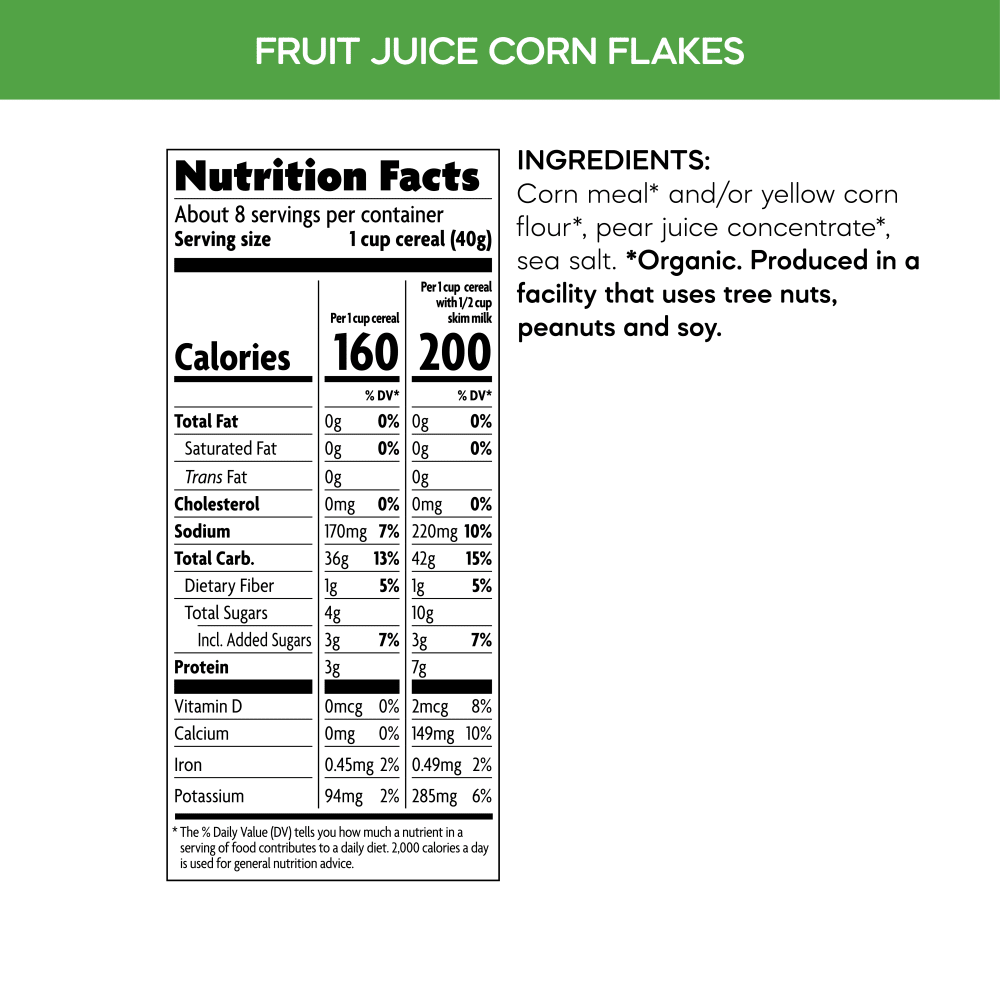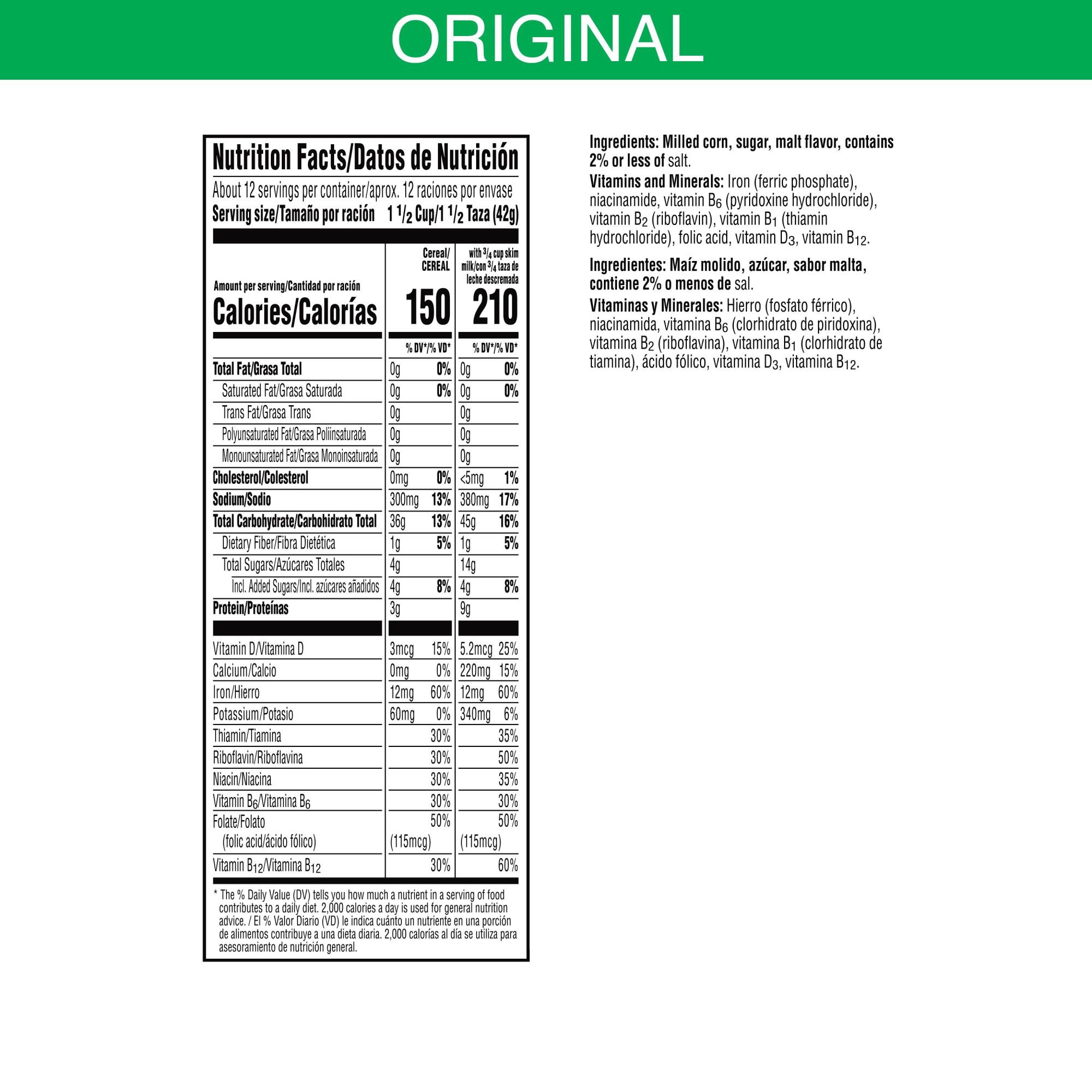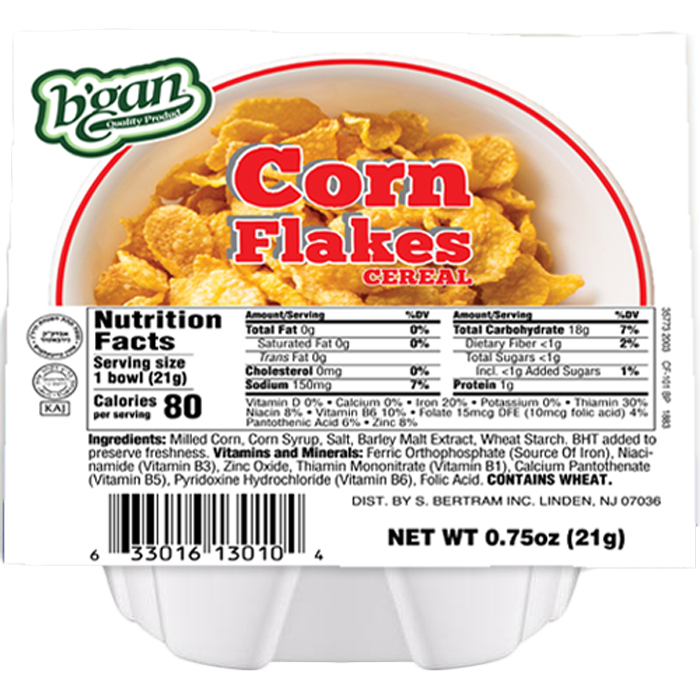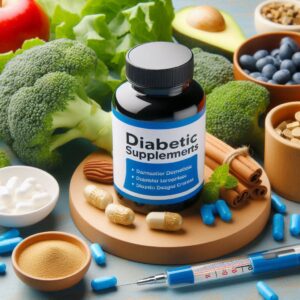
Digestive Health
Corn flakes are made from milled corn. They contain a fair amount of fiber. This is great for your gut.- Fiber helps keep your digestive system running smoothly.
- It aids in preventing constipation.
- Eating them may help maintain a healthy gut.
Energy And Metabolism
Iron is key in corn flakes. It’s vital for energy and metabolism.| Nutrient | Benefit |
|---|---|
| Iron | Boosts energy levels |
| Vitamin B | Supports metabolism |
Potential Downsides
Corn flakes may lack fiber and can be high in sugar. Eating too much could lead to unwanted weight gain and blood sugar spikes. While cornflakes offer convenience and crunch, they come with downsides, too. It’s important to know these before making them a daily breakfast choice. Let’s dive into the details.Sugar Content Concerns
Many Corn Flakes versions add sugar. This boosts flavor but not health. Eating an excessive amount of sugar prompts weight gain. It can also cause dental problems. For a healthier option, pick cornflakes with less sugar. Better yet, add fresh fruit for sweetness.Gluten And Allergy Information
Corn Flakes contain gluten. This is terrible information for those with celiac illness or gluten responsiveness. Gluten can cause stomach pain and other issues for these individuals. Always check the label if gluten is a concern. Also, cornflakes might have traces of nuts or soy. This can trigger allergic reactions. Be cautious and read the packaging carefully.Corn Flakes In Various Diets
Corn Pieces is an exemplary choice for breakfast cereals. Yet, not all diets welcome them the same way. Let’s explore how they fit into various eating plans.Suitability For Vegans
Corn Flakes often raise questions for vegans. Good news – many brands make vegan-friendly options. Check the ingredients to be sure. They should avoid animal-derived vitamin D.Low-carb And Keto Considerations
Corn Flakes can be high in carbs. This makes them tough for low-carb and keto diets. Look for alternatives if you’re cutting carbs. They may not fit your daily carb limit.Comparing Brands
Let’s dive into the world of Corn Flakes. Different brands offer unique tastes and nutrition. This section helps you compare them easily.Nutritional Differences
Each brand of Corn Flakes has its recipe. This means the nutrition in each can vary. Some brands add more vitamins. Others might have less sugar. It’s important to read the labels. Look for differences in calories, protein, and fiber. This helps you choose the healthiest option for you.Taste And Texture Variations
Not all Corn Flakes taste the same. Some are sweeter. Others are crunchier. The texture can also change. Some brands make their flakes thicker. This means they stay crunchy longer in milk. Taste and texture matter for a good breakfast experience. Try different brands. Find which one you like best.

Credit: www.raleys.com
Creative Ways To Enjoy Corn Flakes
Beyond The Breakfast Bowl
Think outside the box with corn flakes. Crush them for a crispy chicken coating. Mix into cookie dough for extra crunch. They can even add a twist to your meatloaf recipe. Let corn flakes inspire your next kitchen adventure.Recipes And Cooking Tips
Start with the basics: swap breadcrumbs with corn flakes. Perfect for baking or frying, they give a satisfying snap to your bites. For desserts, sprinkle over ice cream or blend into milkshakes. These tips make everyday dishes exciting again.Making An Informed Choice
Picking good food varieties is critical to a decent eating routine. Corn flakes are a popular breakfast choice. They are quick, convenient, and tasty. Yet, realizing their dietary benefit is significant. This assists you with settling on decisions that fit your wellbeing objectives. Let’s dive into understanding corn flakes better.
Reading Labels
Always check the nutrition label. It tells you what’s in your food. Look for calories, sugars, fibers, and vitamins. Corn flakes can have added sugar. So, it’s best to choose the ones with less sugar. This helps maintain a healthy lifestyle.
Balancing Diet And Pleasure
Eating should be enjoyable but also healthy. Corn flakes are a good start to the day. Pair them with fruits or nuts. This adds more nutrients. Remember, balance is key. Partake in your food and keep your body cheerful.
The Future Of Breakfast Cereals
The breakfast cereal industry is evolving. With health trends shaping food choices, Corn Flakes are no longer just a quick meal. They’re part of a dynamic shift towards nutritious, convenient breakfast options. Let’s explore what’s on the horizon for these beloved flakes.
Trends In Consumer Preferences
Today’s shoppers prioritize health. They seek cereals with less sugar and more benefits.Natural and non-GMO marks are on the ascent. Consumers also demand variety, from ancient grains to superfood infusions. These trends drive cereal innovation.
- Bold on low sugar options
- Organic ingredients win
- Love for diverse flavors
Innovations In Nutrition
Cereal makers are responding with creative nutrition boosts. They’re fortifying Corn Flakes with vitamins and minerals. Protein-rich and fiber-packed versions appear. These changes aim to transform Corn Flakes into a fueling start to the day.
| Nutrient | Benefit |
|---|---|
| Vitamins | Supports overall health |
| Protein | Builds muscle |
| Fiber | Aids digestion |
These innovations cater to a market hungry for healthy, tasty, and convenient foods. Corn Flakes are stepping up to meet the challenge.

Frequently Asked Questions
What are the Fat content: Carbs and fiber: micronutrients: vitamins: minerals: iron: magnesium: potassium: sodium:What Are The Primary Nutrients In Corn Flakes?
Corn Flakes are high in carbs, low in protein and they contain some vitamins and minerals.
How Many Calories Are in Corn Flakes?
Corn Flakes only has around 100 calories per serving.
Do Corn Flakes Aid In Weight Loss?
Indeed Corn Chips can be viewed as in a weight reduction diet.
Are Corn Flakes Gluten-free?
No, while most Corn Flakes are made from corn, they can also include barley malt flavoring, which does contain gluten.
How Many Vitamins Are There In Corn Flakes?
Corn Flakes are typically fortified with vitamins B, D, and iron.
Conclusion
Nutrition of corn flakes as a main course in diet These crispy, finger-flakeable flakes are more than a quick breakfast option. They provide the fundamental vitamins and minerals our bodies require on any given day. Keep in mind they’re best served with some milk to up the calcium content.
Buy the unsweetened kind to keep it healthy. (With some smart choices, corn flakes can fit into a healthy diet.). Get started this morning with a bang. Pour a bowl and fuel up!
The Origins Of Corn Flakes
The origins of cornflakes trace back to a simple quest for healthful living. This common breakfast cereal has a rich history. Let’s explore the journey from invention to the breakfast tables worldwide.Invention And Historical Context
Dr. John Harvey Kellogg created Corn Flakes in the late 19th century. His aim was simple – promote health and well-being. At the Battle Creek Sanitarium, Kellogg and his brother, Will Keith Kellogg, changed breakfast forever.- 1894: Year of invention
- Sanitarium: Place of origin
- Health: Primary focus
Evolution Of Corn Flakes
From a health food to a pantry staple, Corn Flakes evolved. Advertising played a key role. The Kellogg Company was formed, making Corn Flakes a household name.| Year | Development |
|---|---|
| 1906 | Kellogg Company founded |
| Early 1900s | Mass production began |
| Today | Global presence |
What’s Inside The Box
Let’s dive into what’s inside the box of Corn Flakes. Everyone knows Corn Flakes. But what’s really in them? This section breaks it down.Key Ingredients
Corn is the main ingredient. Simple and nutritious. Next, sugar adds a bit of sweetness. Malt flavor comes next for depth. Lastly, a touch of salt. These ingredients mix for a classic taste.Additives And Preservatives
Vitamins and minerals get added. For health. Iron, Vitamin D, and more. They help us stay strong. Some cornflakes have preservatives. To keep them fresh longer. Always check the box for details.Nutritional Breakdown
Let’s dive into the nutritional breakdown of cornflakes. This popular breakfast cereal often starts the day for many. Understanding what goes into a bowl can help make informed dietary choices.Calories And Macronutrients
Corn flakes are known for their light texture. A typical serving has about 100 calories. This makes it a low-calorie breakfast option. The macronutrient profile includes carbs, protein, and minimal fat. Most calories in cornflakes come from carbs. They provide energy to kickstart the morning. Protein content is low, around 2 grams per serving. Fat is almost non-existent, making cornflakes a low-fat choice.Vitamins And Minerals
Corn flakes also pack essential vitamins and minerals. They are often fortified with vitamins A, B, C, and D. These support vision, energy levels, immunity, and bone health. Iron is another key mineral in cornflakes. It helps carry oxygen into the blood. Some brands also add extra fiber and calcium. This boosts their nutritional profile. Always check the label for the full list of vitamins and minerals.
Credit: www.bganfoods.com
Health Benefits
Digestive Health
Corn flakes are made from milled corn. They contain a fair amount of fiber. This is great for your gut.- Fiber helps keep your digestive system running smoothly.
- It aids in preventing constipation.
- Eating them may help maintain a healthy gut.
Energy And Metabolism
Iron is key in corn flakes. It’s vital for energy and metabolism.| Nutrient | Benefit |
|---|---|
| Iron | Boosts energy levels |
| Vitamin B | Supports metabolism |
Potential Downsides
Corn flakes may lack fiber and can be high in sugar. Eating too much could lead to unwanted weight gain and blood sugar spikes. While cornflakes offer convenience and crunch, they come with downsides, too. It’s important to know these before making them a daily breakfast choice. Let’s dive into the details.Sugar Content Concerns
Many Corn Flakes versions add sugar. This boosts flavor but not health. Eating an excessive amount of sugar prompts weight gain. It can also cause dental problems. For a healthier option, pick cornflakes with less sugar. Better yet, add fresh fruit for sweetness.Gluten And Allergy Information
Corn Flakes contain gluten. This is terrible information for those with celiac illness or gluten responsiveness. Gluten can cause stomach pain and other issues for these individuals. Always check the label if gluten is a concern. Also, cornflakes might have traces of nuts or soy. This can trigger allergic reactions. Be cautious and read the packaging carefully.Corn Flakes In Various Diets
Corn Pieces is an exemplary choice for breakfast cereals. Yet, not all diets welcome them the same way. Let’s explore how they fit into various eating plans.Suitability For Vegans
Corn Flakes often raise questions for vegans. Good news – many brands make vegan-friendly options. Check the ingredients to be sure. They should avoid animal-derived vitamin D.Low-carb And Keto Considerations
Corn Flakes can be high in carbs. This makes them tough for low-carb and keto diets. Look for alternatives if you’re cutting carbs. They may not fit your daily carb limit.Comparing Brands
Let’s dive into the world of Corn Flakes. Different brands offer unique tastes and nutrition. This section helps you compare them easily.Nutritional Differences
Each brand of Corn Flakes has its recipe. This means the nutrition in each can vary. Some brands add more vitamins. Others might have less sugar. It’s important to read the labels. Look for differences in calories, protein, and fiber. This helps you choose the healthiest option for you.Taste And Texture Variations
Not all Corn Flakes taste the same. Some are sweeter. Others are crunchier. The texture can also change. Some brands make their flakes thicker. This means they stay crunchy longer in milk. Taste and texture matter for a good breakfast experience. Try different brands. Find which one you like best.

Credit: www.raleys.com
Creative Ways To Enjoy Corn Flakes
Beyond The Breakfast Bowl
Think outside the box with corn flakes. Crush them for a crispy chicken coating. Mix into cookie dough for extra crunch. They can even add a twist to your meatloaf recipe. Let corn flakes inspire your next kitchen adventure.Recipes And Cooking Tips
Start with the basics: swap breadcrumbs with corn flakes. Perfect for baking or frying, they give a satisfying snap to your bites. For desserts, sprinkle over ice cream or blend into milkshakes. These tips make everyday dishes exciting again.Making An Informed Choice
Picking good food varieties is critical to a decent eating routine. Corn flakes are a popular breakfast choice. They are quick, convenient, and tasty. Yet, realizing their dietary benefit is significant. This assists you with settling on decisions that fit your wellbeing objectives. Let’s dive into understanding corn flakes better.
Reading Labels
Always check the nutrition label. It tells you what’s in your food. Look for calories, sugars, fibers, and vitamins. Corn flakes can have added sugar. So, it’s best to choose the ones with less sugar. This helps maintain a healthy lifestyle.
Balancing Diet And Pleasure
Eating should be enjoyable but also healthy. Corn flakes are a good start to the day. Pair them with fruits or nuts. This adds more nutrients. Remember, balance is key. Partake in your food and keep your body cheerful.
The Future Of Breakfast Cereals
The breakfast cereal industry is evolving. With health trends shaping food choices, Corn Flakes are no longer just a quick meal. They’re part of a dynamic shift towards nutritious, convenient breakfast options. Let’s explore what’s on the horizon for these beloved flakes.
Trends In Consumer Preferences
Today’s shoppers prioritize health. They seek cereals with less sugar and more benefits.Natural and non-GMO marks are on the ascent. Consumers also demand variety, from ancient grains to superfood infusions. These trends drive cereal innovation.
- Bold on low sugar options
- Organic ingredients win
- Love for diverse flavors
Innovations In Nutrition
Cereal makers are responding with creative nutrition boosts. They’re fortifying Corn Flakes with vitamins and minerals. Protein-rich and fiber-packed versions appear. These changes aim to transform Corn Flakes into a fueling start to the day.
| Nutrient | Benefit |
|---|---|
| Vitamins | Supports overall health |
| Protein | Builds muscle |
| Fiber | Aids digestion |
These innovations cater to a market hungry for healthy, tasty, and convenient foods. Corn Flakes are stepping up to meet the challenge.

Frequently Asked Questions
What are the Fat content: Carbs and fiber: micronutrients: vitamins: minerals: iron: magnesium: potassium: sodium:What Are The Primary Nutrients In Corn Flakes?
Corn Flakes are high in carbs, low in protein and they contain some vitamins and minerals.
How Many Calories Are in Corn Flakes?
Corn Flakes only has around 100 calories per serving.
Do Corn Flakes Aid In Weight Loss?
Indeed Corn Chips can be viewed as in a weight reduction diet.
Are Corn Flakes Gluten-free?
No, while most Corn Flakes are made from corn, they can also include barley malt flavoring, which does contain gluten.
How Many Vitamins Are There In Corn Flakes?
Corn Flakes are typically fortified with vitamins B, D, and iron.
Conclusion
Nutrition of corn flakes as a main course in diet These crispy, finger-flakeable flakes are more than a quick breakfast option. They provide the fundamental vitamins and minerals our bodies require on any given day. Keep in mind they’re best served with some milk to up the calcium content.
Buy the unsweetened kind to keep it healthy. (With some smart choices, corn flakes can fit into a healthy diet.). Get started this morning with a bang. Pour a bowl and fuel up!






